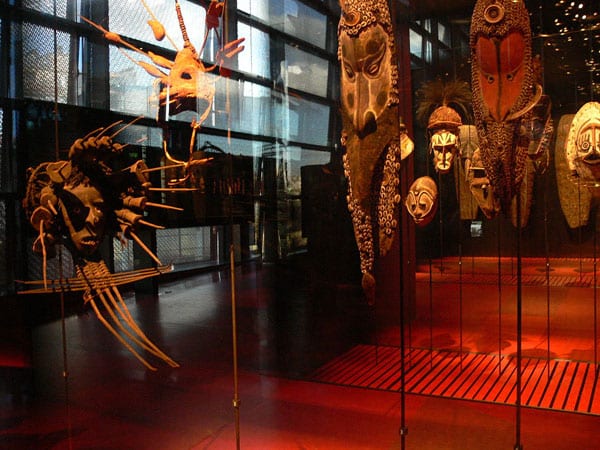
November 27, 2018; New York Times
A report commissioned by French president Emmanuel Macron and written by Bénédicte Savoy of France and Felwine Sarr of Senegal recommends that any artifacts taken without consent from Africa and sent to France be permanently returned if their countries of origin ask for them. Macron, however, stopped short of implementing that recommendation, instead ordering only that 26 items be returned immediately to Benin from the Quai Branly Museum and that the cultural treasures of sub-Saharan Africa be made accessible in Africa not only through restitution, but also through exhibitions, exchanges, and loans. He also calls for an international conference on the matter early next year. The report specifically advises against temporary restitution measures such as long-term loans.
Museum directors across Europe are reported to have reacted uneasily, clarifying that Macron was speaking for France and France alone.
The restitution of 26 objects to Benin “does not change the policy of the British Museum, nor legislation in Great Britain,” said Hartwig Fischer, the director of the London institution, which has 73,000 objects from sub-Saharan Africa in its collections, many obtained in colonial times. The museum has been in a decades-long dispute with Greece over the so-called Elgin marbles, which came from the Parthenon, and the governor of Easter Island requested last week the return of Hoa Hakananai’a, a statue that is among the British Museum’s most popular items.
Fischer said that while the British Museum’s trustees were open to all forms of cooperation, “the collections have to be preserved as whole.”
He recognized that Macron’s announcement would “intensify the debate” about access and would contribute to “the next dimension of cooperation” as African countries develop their cultural and museum infrastructure.
Fischer calls the French report “a radical proposal” that made a “moral argument” against colonialism, whereby “everything that took place under the conditions of colonialism is eligible for restitution.” Further, he notes that Macron’s commitment was more “nuanced,” providing for a range of measures short of restitution.
Stéphane Martin, president of the Quai Branly Museum said in an interview with the French daily Le Figaro that the report was “a bad answer to the courageous question posed by the president.” While restitution is “not a word that I’m scandalized by,” he says, there are “other ways to engage in cultural cooperation with Africa.”
Stakeholders in Africa understandably feel very differently.
Sign up for our free newsletters
Subscribe to NPQ's newsletters to have our top stories delivered directly to your inbox.
By signing up, you agree to our privacy policy and terms of use, and to receive messages from NPQ and our partners.
Prince Kum’a Ndumbe III of the Duala people in Cameroon, who runs AfricAvenir International, a nonprofit that calls for the restitution of artifacts taken without consent, said that the French report was “the first step in the right direction.” He added that such a political commitment had been awaited since Cameroon and much of the rest of Francophone Africa gained independence from France in 1960.
“This is not just about the return of African art,” he said. “When someone’s stolen your soul, it’s very difficult to survive as a people.”
He invited Britain and Germany to follow the French example and commission their own restitution reports.
The ball is now in the court of France’s culture minister and foreign minister, who have been asked to bring together African and European museum managers and cultural professionals to ensure that works of art circulate not only among the major museums of the world—which hold 90 percent to 95 percent of sub-Saharan Africa’s cultural heritage, according to the report—but also on the African continent.
The Paris conference next year will be a test of that process.
Sindika Dokolo, a businessman from the Democratic Republic of Congo who runs an art foundation in Angola and who has bought back looted African art, said the French president’s restitution offer had “no precedent.”
“Macron has opened a Pandora’s box,” he said.
At the same time, Dokolo urged African leaders to respond quickly, before a change of government or mood in France—to “put their foot in the door before it closes.”—Ruth McCambridge












